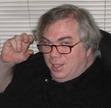Wisdom, and the Lack Thereof
February was a hectic month. Multiple deadlines. Multiple projects. Trying to help my family hold onto their collective and individual sanity, at least to the degree that this is still a relevant goal.
Which, naturally, made it the ideal time for me to take on another project: low-income, not all that high importance if I’m to be honest, and nothing I was under any obligation of doing. For no good reason except that it caught my eye, and, well, I wanted to. Did you expect anything else?
#######
The project, ironically enough, is a book about Mormon Wisdom, consisting of wise-sounding or otherwise noteworthy quotes from Mormons. I got into it when a friend of mine with whom I’ve worked on some other projects asked a list of people if they wanted to review an early draft. And I, of course, said yes. Then, after I had providing detailed feedback on the first bit, my friend asked if I wanted to do an editorial pass on the whole thing. Since, you know, I seemed to have Opinions. How long do we have? I asked. A month, quoth he.
And so of course I said yes.
#######
My efforts were concentrated in three areas.
Based on the project’s budget and timeline, quotes had been collected, up to that point, largely by canvassing online quote collections about various individuals. Based on my own spot-checking of some of these, I found myself deeply suspicious. Goodreads, it turns out, does not verify their quotes. A quick check of some suspicious-looking sources found some that were misattributed, and some that had been heavily edited in unacknowledged ways. So I persuaded my friend to have the third contributing editor (who had done most of the initial collection of quotes) go through and do source-checking, using a spreadsheet I had compiled and my set of suggestions on how to do such a thing. Then after that was done, I reviewed the result, did additional searching for quotes he hadn’t been able to find, and made needed corrections into the file.
One of the things that bothered me about the initial draft was the preponderance of men, and particularly of LDS church leaders. My second area of effort lay in trying to bring in quotes from lesser-known Mormons, and particularly women. This task was made considerably more challenging due to one of the restrictions under which we were working, that all quotes had to be from people now deceased (for a variety of reasons I won’t go into here). My efforts in this respect did not meet as much success as I would have liked — but I did wind up adding some 16 names to the bios list, more than half of them women. It was a bit.
One of my reactions in reading through parts of the initial draft was that much of it sounded like a “Best of General Conference” or “Best of Church Sermons” collection. My sense was that (a) this is a need that is already being met, and (b) the title “Mormon Wisdom” promises something a little more eclectic, with a mix of the spiritual and the practical. My third area of effort related to trying to make this happen, though a combination of cutting, editing (like cutting except that you keep part of a quote and throw away the rest), reorganizing, and plugging in new quotes that helped to fill out some of the topics — followed by a final read-through to make it flow better. (At least, to me. Such things are notoriously subjective.)
#######
So, should you buy the book? Short answer: I don’t know.
A lot will depend, I suppose, on just how much it costs. Which I don’t have any ideas about. I never had any direct contact with the publisher (Skyhorse Publishing), and don’t really know much about them, except that they seem to be a bona fide national publisher with decent-looking books. That’s a plus, I suppose?
I can’t really say that this book was done the way it ought to be done. For one thing, that would have taken a lot more time than we had, or were being paid for. And a lot of the quotes are ones that anyone who’s been in Mormon circles for a while will already be familiar with.
There are also some missing that you might expect. For instance, that quote from David O. McKay about no success compensating for failure in the home? Actually it was something he quoted from someone else (not a Mormon). So, no.
It’s certainly not what you’d call a deep or profound book. Of course, that’s not what books of this sort promise.
It’s pleasant enough. (And wow, isn’t that a lukewarm endorsement?) Maybe a good coffee (pardon me, Postum) table or bathroom book? You may find a few quotes in it that you’ll want to read out loud to others. Or perhaps not. Frankly, at this point I’m too close to know for sure one way or the other. I’ll let you know what I think once my contributor copy arrives later this year…



